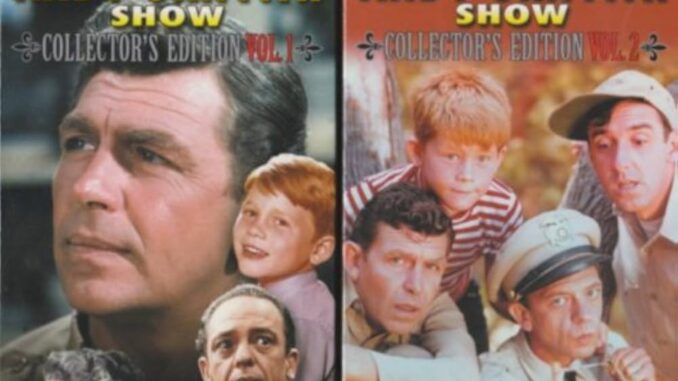
In 1960, television viewers met Sheriff Andy Taylor and the town of Mayberry for the first time.
The classic comedy’s pilot aired on The Danny Thomas Show that year. The pilot went so well, Griffith was offered his own show on CBS to premiere that fall.
As well as that first show was received, Griffith disliked the atmosphere on Thomas’ set so much, he nearly dropped the idea of doing his own show.
‘The Andy Griffith Show’ was a single-camera production
Griffith liked the idea of shooting episodes with one camera only, in essence going against the grain of how shows were being filmed at the time.
“The Andy Griffith Show would be shot with a single camera, like a movie, the scenes filmed out of sequence and without an audience,” Andy and Don: The Making of a Friendship and a Classic American TV Show author Daniel de Visé (and Don Knotts’ brother-in-law) wrote. “The format ensures the production will focus on character, story, and human interaction.”
As the actor told himself PBS’ Pioneers of Television: “We could do these long, little nice scenes without having to go for a joke. And we could also go outside. With three cameras, you’re pretty well locked into two or three sets. With one camera, you’ve got all of the outdoors and the whole town of Mayberry and everything.”

The star didn’t like the stress that accompanied 3-camera shows
The actor chatted with the Television Academy Foundation in 1998. He explained at that time his intense dislike of the multi-camera set-up on The Danny Thomas Show. It was on Thomas’ show that The Andy Griffith Show’s pilot was introduced. Working with Thomas and his crew left Griffith thoroughly unimpressed with their yelling “at each other all day.”
“I asked [Andy Griffith Show creator Sheldon Leonard] if I could talk to him at the end of the day,” he recalled. “And I said, ‘If this is what television is, I don’t think I can handle it.’
“And he said, ‘Andy, the star dictates what the attitude will be on the set.’ He said, ‘Danny likes to yell, so we all yell. If you don’t want to yell, nobody will yell.’ That’s the way it was.”
Griffith felt ‘actors played for laughs’ with 3 cameras
De Vise noted: “Most situation comedies of the day, including Danny Thomas, were filmed with three cameras before a live studio audience. That format generated a natural laugh track and a wonderful chemistry between audience and performers, who fed on the energy in the room.”
The problem for Griffith with a multi-camera format was he felt it was ultimately distracting to actors. The situation caused them to work for positive audience reaction instead of for the scene.
“I hate those three-camera shows,” Griffith said. “You can work on values all week, and the minute you bring two hundred people in, all your values go out the window.”
Clearly, Griffith got used to working with Thomas as he became one of the Griffith Show’s executive producers.
